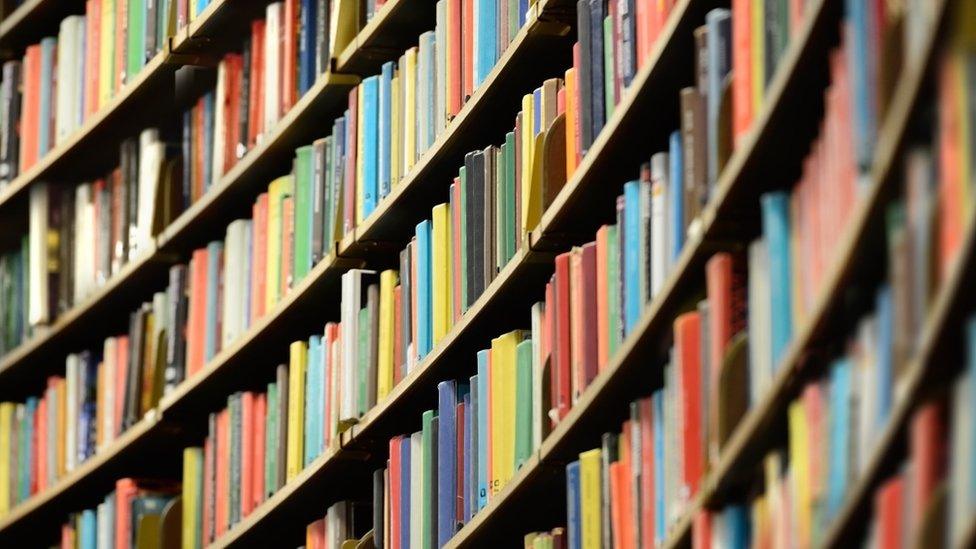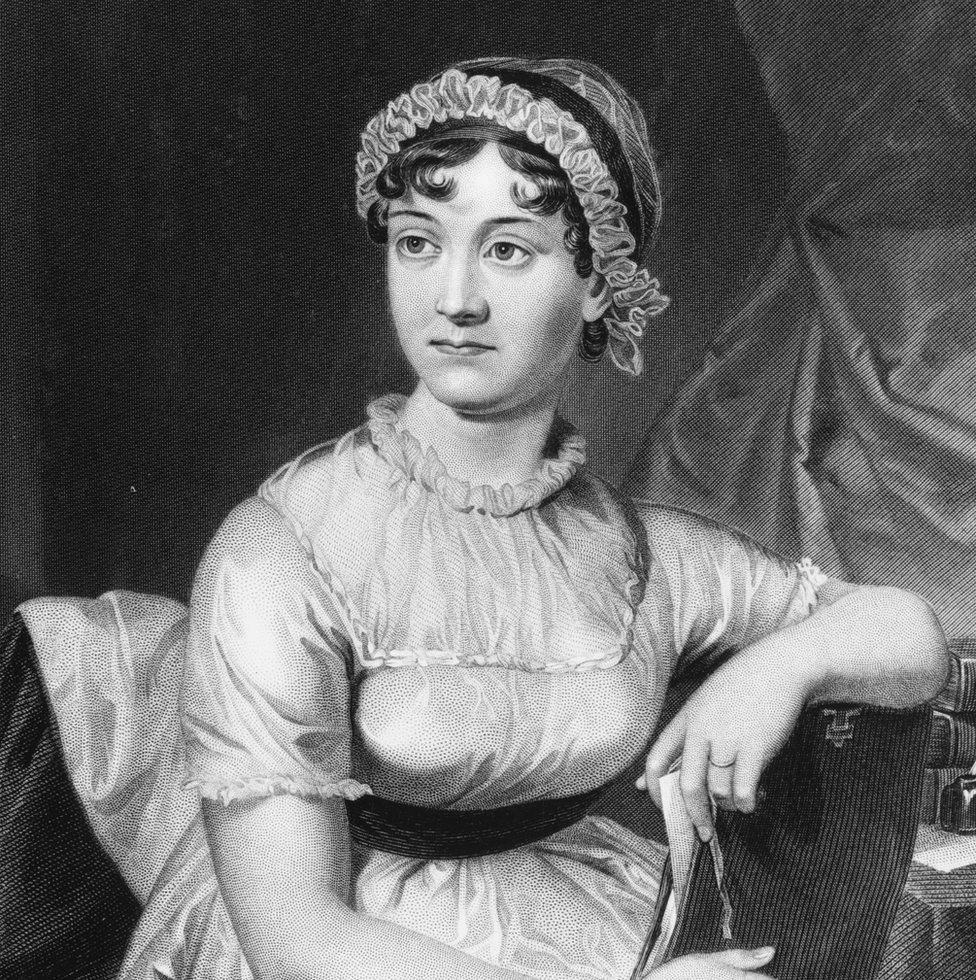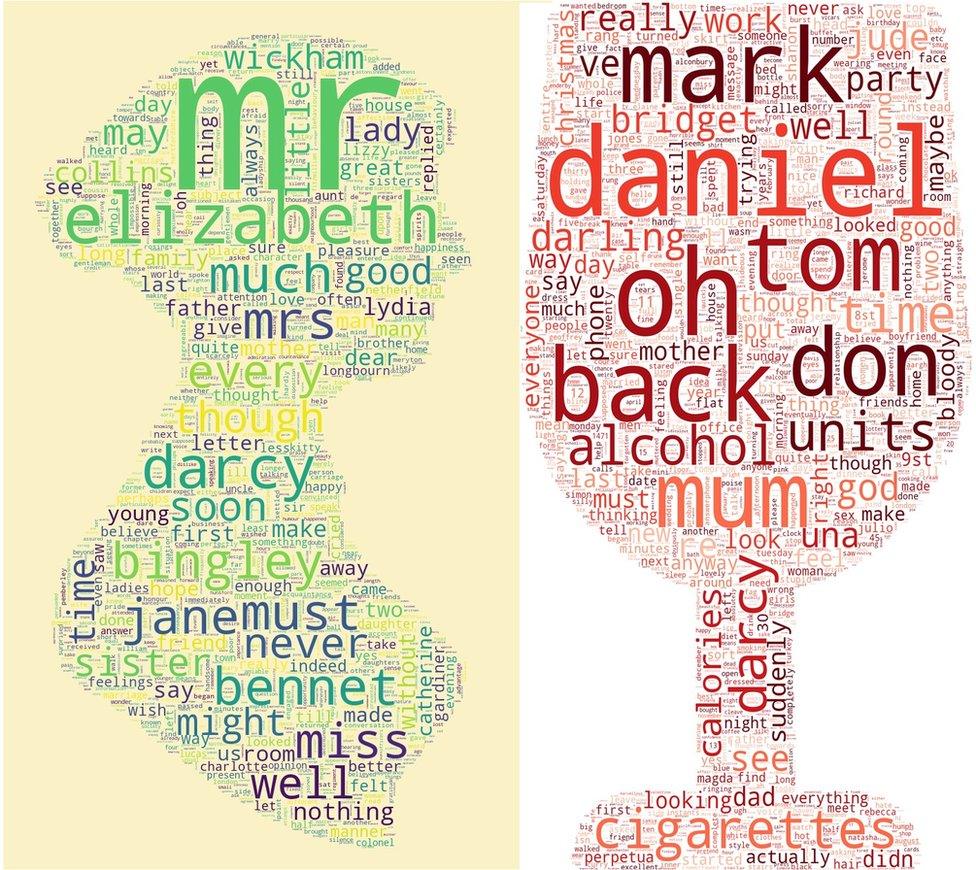Is it time to re-think the love story?
- Published

When it comes to love stories, what makes a great novel a classic rather than a guilty pleasure? This Valentine's Day, academics are asking readers for help to understand why some romantic novels are remembered as masterpieces, while others are considered light entertainment.
Riders, a tale of wealthy love-rivals set to the background of show-jumping, helped author Jilly Cooper to sales of 12 million books after it was published in 1985.
But Cooper herself said she was surprised to see the story, external appear alongside Jane Austen's Pride and Prejudice in the BBC's recent 100 Novels That Shaped Our World.
Austen's novel is a staple on school and university syllabuses, while Cooper's novel is yet to make it as essential academic reading.
However, work by French sociologist Pierre Bourdieu suggests that acceptance of a novel into the literary canon - a body of texts considered important or influential - often has less to do with the work itself, and more to do with other social and cultural factors.
This finding was supported by recent research in the Netherlands. In a ground-breaking project, The Riddle of Literary Quality, a survey of over 13,000 participants found that readers gave statistically higher ratings of "literary quality" to novels written by men.

Pride and Prejudice, by Jane Austen (pictured), is considered part of the literary canon, but why?
Project lead Karina van Dalen-Oskam described the results as startling.
She suggested that while many high-quality novels by female authors were included in the study, the Dutch canon contained only a few books written by women, and that this may have shaped readers' perceptions of women writers.
As part of The Novels That Shaped Our World season, a team of literature experts led by Professor Sebastian Groes at the University of Wolverhampton, hopes to explore whether the same is true for English texts.
This Valentine's Day, they are asking the public to tell them about the love stories that shaped their worlds. The survey forms part of a larger project, external, which the authors hope will become the largest ever investigation into attitudes to the English language novel.

The Novels That Shaped Our World
A year-long celebration of literature to mark the 300th publication of Robinson Crusoe, sometimes seen as the first English novel
A panel of six authors and literature experts chose the 100 novels that shaped their lives
Throughout 2020, the BBC will be providing resources for book clubs to explore the panel's choice

Computer analysis
As well as gathering responses from the reading public, the team will be performing computational analysis of all 100 novels in the BBC list.
This will allow them to examine elements of each author's style such as sentence length, the use of difficult words, and the topics a story deals with.
They will then explore how these are linked to readers' enjoyment of the books, and to whether they perceive them as "literary".
Comparisons between Pride and Prejudice with Helen Fielding's Bridget Jones's Diary have already underlined the role of changing language in the continuing evolution of the novel.
Fielding favours nouns such as "cigarettes", "units", "alcohol" and "calories", reflecting Bridget's late 20th Century obsessions. In Austen's novel, the words "sister", "father", "colonel" and "aunt" all feature in the top 10, revealing a different preoccupation with family and status.

However, the frequent appearances of "letter" in Pride and Prejudice, and '"message'" and "phone" in Bridget show a similar emphasis in both novels on social connections and communication.
The research project, called Novel Perceptions, will explore how features such as these affect readers' judgement of texts.
Prof van Dalen-Oskam, who is collaborating on the new survey, said that computers have provided exciting new ways of thinking about literature.
"We can look at novel-length texts and see patterns in an author's language that would be really hard for human readers to spot, but which can tell us something about an author's distinctive style," she said.
"At the same time, we can use the internet to gather feedback from many thousands of participants in different locations and with different backgrounds. A study like this would not have been possible 20 years ago."
BBC executive producer Stephen James-Yeoman suggested that the project represented a unique opportunity to discover more about the nation's favourite books.
"We always intended The Novels That Shaped Our World list to be a starting point for discussion," he said.
"We're delighted that the public will now have a chance to reveal the novels that are really important to them, and help shape academic understanding."
The survey is running on the Open University's nQuire website, external, a citizen science platform built in collaboration with the BBC.